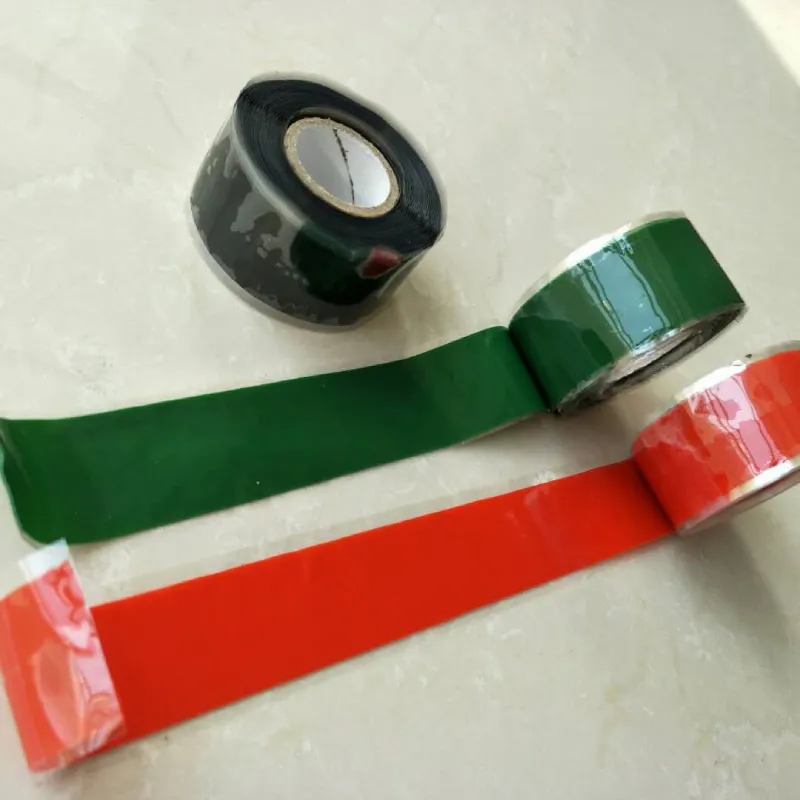High-Temperature Thermal Insulation Tape An Essential Tool for Effective Temperature Management
In the world of thermodynamics and thermal management, the significance of thermal insulation materials cannot be overstated. High-temperature thermal insulation tape is one such vital component that has found extensive application across various industries, from aerospace to automotive, electrical, and manufacturing. This specialized tape is designed to withstand extreme heat while providing insulation, thereby ensuring safety, efficiency, and durability in high-temperature environments.
Understanding Thermal Insulation Tape
Thermal insulation tape is composed of materials engineered to resist heat flow. Unlike standard adhesive tapes, high-temperature insulation tapes are made from advanced materials such as fiberglass, silicone, or ceramic. These materials allow them to function effectively in environments where temperatures can exceed 500 degrees Fahrenheit (260 degrees Celsius). This capability is crucial in applications where contact with hot surfaces or exposure to heat can lead to catastrophic failures.
Applications of High-Temperature Thermal Insulation Tape
1. Electrical Insulation High-temperature insulation tape is widely used in the electrical industry, particularly for insulating wires, connectors, and terminals. It prevents electrical shorts and protects components from heat generated by electrical current, ensuring reliable operation of electrical systems.
2. Automotive Industry In vehicles, components such as exhaust systems, turbochargers, and under-hood applications generate substantial heat. High-temperature thermal insulation tape helps shield sensitive parts from excessive heat, preserving performance and extending the lifespan of automotive components.
3. Aerospace The aerospace industry often deals with extreme temperatures during flight operations. High-temperature insulation tape is used in aircraft to protect wiring and other critical components from the intense heat produced by engines and other systems, ensuring safety and reliability.
4. Manufacturing In manufacturing processes, especially those involving high-temperature machinery, insulation tape is employed to manage heat flow, prevent overheating, and insulate surfaces. This not only improves the efficiency of operations but also enhances worker safety.
Benefits of High-Temperature Thermal Insulation Tape
1. Heat Resistance The primary advantage of high-temperature insulation tape is its ability to withstand extreme temperatures without degrading or losing efficacy. This property makes it ideal for applications where traditional tapes would fail.
thermal insulation tape high temperature

2. Durability High-temperature insulation tapes are designed to be durable and long-lasting. They typically exhibit resistance to moisture, chemicals, and abrasions, making them suitable for harsh environments.
3. Versatility These tapes are available in various sizes and thicknesses, allowing for flexibility in their application. They can be used for a wide range of temperatures and conditions, making them suitable for diverse industries.
4. Easy Application High-temperature thermal insulation tape is user-friendly. It can be easily cut, shaped, and applied to irregular surfaces, enabling quick and efficient installation without the need for specialized tools.
Choosing the Right High-Temperature Thermal Insulation Tape
When selecting high-temperature thermal insulation tape, it is essential to consider several factors
- Temperature Rating Ensure that the tape is rated for the applicable temperature range of your specific application. This will guarantee optimal performance and safety.
- Backing Material Different materials offer varying levels of insulation and durability. Fiberglass and silicone are popular choices, but the best option will depend on the specific environmental conditions.
- Adhesive Properties The adhesive used in the tape should be able to hold under high temperatures without degrading. It's crucial to select a tape with a strong, heat-resistant adhesive to ensure long-term reliability.
- Thickness and Width Depending on the application, thicker tape may provide better insulation. However, the appropriate size will depend on the specific requirements of your project.
Conclusion
In conclusion, high-temperature thermal insulation tape is an indispensable tool for ensuring effective thermal management across various industries. Its ability to withstand extreme temperatures and provide reliable insulation makes it a vital component in electrical, automotive, aerospace, and manufacturing applications. When selecting the right tape, consider the specific requirements of your application to ensure optimal performance and safety. As industries continue to advance, the role of high-temperature insulation tape will remain critical in managing heat and protecting vital components in high-stakes environments.
-
XIANGFAN Rubber Tape-Ultimate Solutions for All Your Insulation NeedsNewsJun.24,2025
-
XIANGFAN Rubber Tape-Protection for Industrial and Residential ApplicationsNewsJun.24,2025
-
XIANGFAN Rubber Tape: Superior Safety and Sealing for Demanding EnvironmentsNewsJun.24,2025
-
XIANGFAN Rubber Tape: Reliable Solutions for Every Electrical ChallengeNewsJun.24,2025
-
XIANGFAN Electrical & Industrial Tape: Powering Reliability Across IndustriesNewsJun.24,2025
-
XIANGFAN Electrical & Industrial Tape: Excellence in Every ApplicationNewsJun.24,2025
